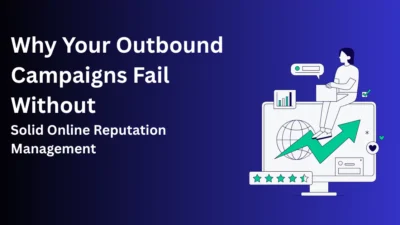Your brand’s reputation is your business’s backbone. It’s what drives trust, loyalty, and ultimately, revenue. But maintaining a positive reputation in today’s digital-first world is no small feat. Customers, competitors, and social platforms can all influence public opinion in an instant. That’s where online reputation management (ORM) tools come in.
This blog explores the primary function of ORM tools, why they’re critical for businesses of all sizes, and how they help you build, monitor, and maintain a strong online presence. Whether you’re managing a sprawling enterprise or a boutique startup, you’ll find actionable insights on leveraging these tools effectively.
Understanding Online Reputation Management Tools
ORM tools are software platforms designed to help businesses monitor and manage their online image. At their core, they focus on ensuring that customers, stakeholders, and the broader public perceive your brand positively. These tools pull data from multiple sources, including review sites, social media platforms, search results, and news articles, to give an accurate snapshot of your brand’s digital reputation.
While ORM tools encompass several features, one primary function stands out above the rest.
The Primary Function of ORM Tools: Monitoring and Managing Your Brand’s Online Presence
The most critical purpose of any ORM tool is to monitor and proactively manage your online presence. Here’s how this core functionality works and why it matters:
1. Listening to Online Conversations
An ORM tool continuously monitors the internet for mentions of your brand, keywords, products, or services. This includes:
- Social Media Posts where users tag or discuss your company.
- Online Reviews on platforms like Google, Yelp, or TripAdvisor.
- News Articles and blogs that mention your business.
- Competitor Comparisons, gauging how people perceive your brand relative to others.
Monitoring enables you to stay on top of your brand’s digital narrative. For instance, an ORM tool might alert you to a negative Tweet going viral, providing an opportunity to address it quickly.
2. Identifying and Resolving Negative Content
One negative review or tweet can sometimes snowball into a public relations crisis. ORM tools actively identify negative feedback that could harm your reputation so that you can act immediately. For example:
- They notify you when your business receives a 1-star review.
- They help you locate and respond to harmful misinformation.
- Some tools even offer sentiment analysis, categorizing mentions as positive, neutral, or negative.
Case in point, if your hotel business receives a damaging review about poor service, an ORM tool helps you respond publicly with an apology and a resolution. This can improve public perception and show that you care about customer satisfaction.
3. Enhancing Customer Engagement
ORM tools make it easier for businesses to communicate with their audience directly. For example:
- Respond to reviews or comments in real-time to show you value customer feedback.
- Engage in conversations where your brand or products are discussed, answering questions or solving problems proactively.
By nurturing customer interactions, you create stronger relationships and build loyalty, which positively impacts your reputation.
4. Influencing Search Engine Results
ORM tools help influence how your business appears in search engine results, a critical aspect of reputation management. Negative press or reviews can dominate the rankings unless effectively managed. ORM tools:
- Track what users see when they search for your brand.
- Help push positive content higher up in search results.
- Provide actionable strategies to fix negative SEO impacts.
An excellent example is creating and amplifying high-quality blog content or press releases to outweigh negative articles.
Additional Features to Strengthen Reputation Management
While monitoring is the core function, ORM tools also include capabilities that further enhance their value:
Sentiment Analysis
ORM tools analyze customer feedback and classify it into positive, neutral, or negative sentiment. This trend analysis gives you better insights into customer perceptions over time.
Competitive Analysis
Many ORM tools allow you to benchmark your reputation against competitors. This helps you identify areas where you’re excelling and where you need improvement.
Crisis Management
Advanced ORM platforms create automated alerts for sudden spikes in negative feedback, so your team can manage crises as they arise.
Generating Reviews
Some ORM platforms feature tools to encourage satisfied customers to leave positive reviews. For instance, they may automatically send review requests to customers post-purchase.
Why Businesses Need ORM Tools
Investing in ORM tools isn’t just about avoiding bad press. There are several significant benefits:
Build and Maintain Consumer Trust
73% of customers say good reviews make them trust a business; 50% avoid companies with poor reviews. ORM tools enable you to highlight the positive and resolve the negative to build trust with potential customers.
Boost Revenue Through Positive Perception
According to a study, businesses with a stellar online reputation see a revenue increase of up to 9%. ORM tools make it possible to sustain positive reviews and boost customer engagement, ultimately impacting bottom lines.
Save Time and Resources
Manually tracking every mention of your business online is nearly impossible. ORM tools automate monitoring, saving your team countless hours while providing real-time insights.
How to Choose the Right ORM Tool for Your Business
With dozens of ORM tools on the market, knowing how to choose the right one is essential. Here’s what to look for:
- Real-Time Alerts: Ensure the tool offers immediate notifications for online mentions.
- User-Friendly Interface: A clutter-free dashboard ensures critical insights are easy to find.
- Wide Platform Coverage: The best ORM tools monitor a range of sources, from social media to niche review platforms.
- Custom Reporting: Look for tools with customizable reporting, which is helpful when presenting insights to stakeholders.
- Scalability: Choose tools that can grow with your business.
Take Control of Your Online Reputation
Maintaining a positive online presence doesn’t just happen overnight. With the right ORM tool, you can monitor mentions, respond to concerns, and shape public perception effectively.
If your business doesn’t yet have an ORM tool in place, this is your call to action. Choose a trusted tool that fits your organization’s needs and start protecting your reputation today. Remember, your brand is your most valuable asset—isn’t it worth managing effectively?
Learn more about: Online Reputation Management





